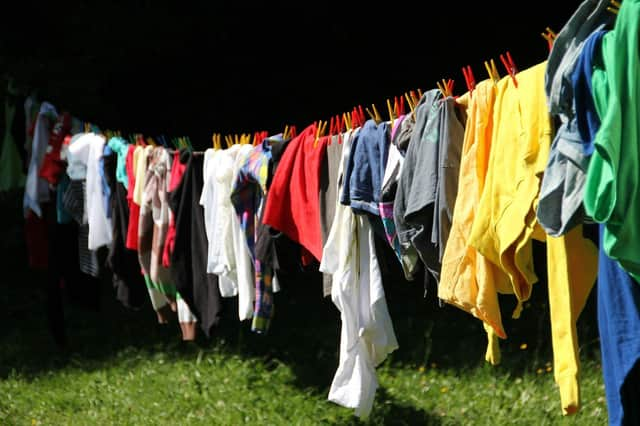OPINION: You can save money and help the environment - Zero Carbon Harrogate


That may sound obvious.
But we need reminding every so often that it’s the small changes to our everyday habits that clock up and make all the difference to our bills.
Most household electricity is used in the kitchen.
Here it’s all about heat!
Appliances that use heat or need hot water are particularly energy intensive.
Advertisement
Hide AdAdvertisement
Hide AdFor example for cooking; washing, drying and ironing clothes; and washing dishes.
Aim to minimise electricity consumption by using full loads for the washing machine and dishwasher.
Go for the lowest temperature wash that’s practical.
Dry clothes outside when possible or inside in a well-ventilated room.
A load of laundry at 30C and dried on the line creates 330gCO2e but this rises to 2kgCO2e with a 40C wash and tumble dry.
Advertisement
Hide AdAdvertisement
Hide AdGet a washing up bowl, rather than using a running tap. Give yourself a break and avoid as much ironing as you can and save 14g carbon emissions per shirt!
Boil hot water (only the amount you need) in the kettle rather than in a pan on a gas hob.
A litre of water boiled using electricity generates 40gCO2e compared to 114CO2e using gas, as the UK electricity grid takes a large portion of its energy from renewable generation.
If you have a microwave oven, remember it is much more efficient and quicker to use for reheating food than using a conventional oven or electric hob.
Advertisement
Hide AdAdvertisement
Hide AdIf you need to use the oven, try to ensure you cook several things at once, to make good use of the energy used to heat it up.
If you live by the mantra to only use lighting, appliances and heating when required then you are on the right track. Replace old light bulbs with LEDs.
You can also make modest savings by not leaving anything on standby (unless recommended to leave the device turned on - for example a wireless router).
It’s best to turn your PC or Laptop off when you’re not using it, because even in the ‘sleep’ mode it can use a significant amount of power over the course of a year.
Advertisement
Hide AdAdvertisement
Hide AdGaming on a PC or laptop can use quite a lot of power and could cost you around £25.50 every year.
Our Yorkshire climate has changed, we are experiencing more dangerous summer heatwaves, which can cause discomfort and deaths from heat stress among the vulnerable and elderly.
The good news is using an electric fan to manage that sticky heat is only going to cost pennies to run while you sleep.
A typical 12-inch 35W desk fan would cost just 1p an hour to run based on the current average price cap rates, so about 10p if you leave it on all night.
Advertisement
Hide AdAdvertisement
Hide AdIf you have a Smart Electricity Meter you can see how much extra power is being used when you turn on appliances and devices.
With more information on your day-to-day energy use you can spot ways to cut back.
A unit of electricity generates 340g carbon emission and costs 28p (KWh) on the OFGEM (price-capped) tariff and the average household uses 3000 units a year.
So if you can reduce your use by just 10 per cent you will save £80 and 1000kg of carbon. If prices go up again in the autumn, as expected, it will be even more worthwhile to reduce your electricity use.
Useful advice on reducing the cost of energy at home can be found on the Energy Savings Trust website at https://energysavingtrust.org.uk/.